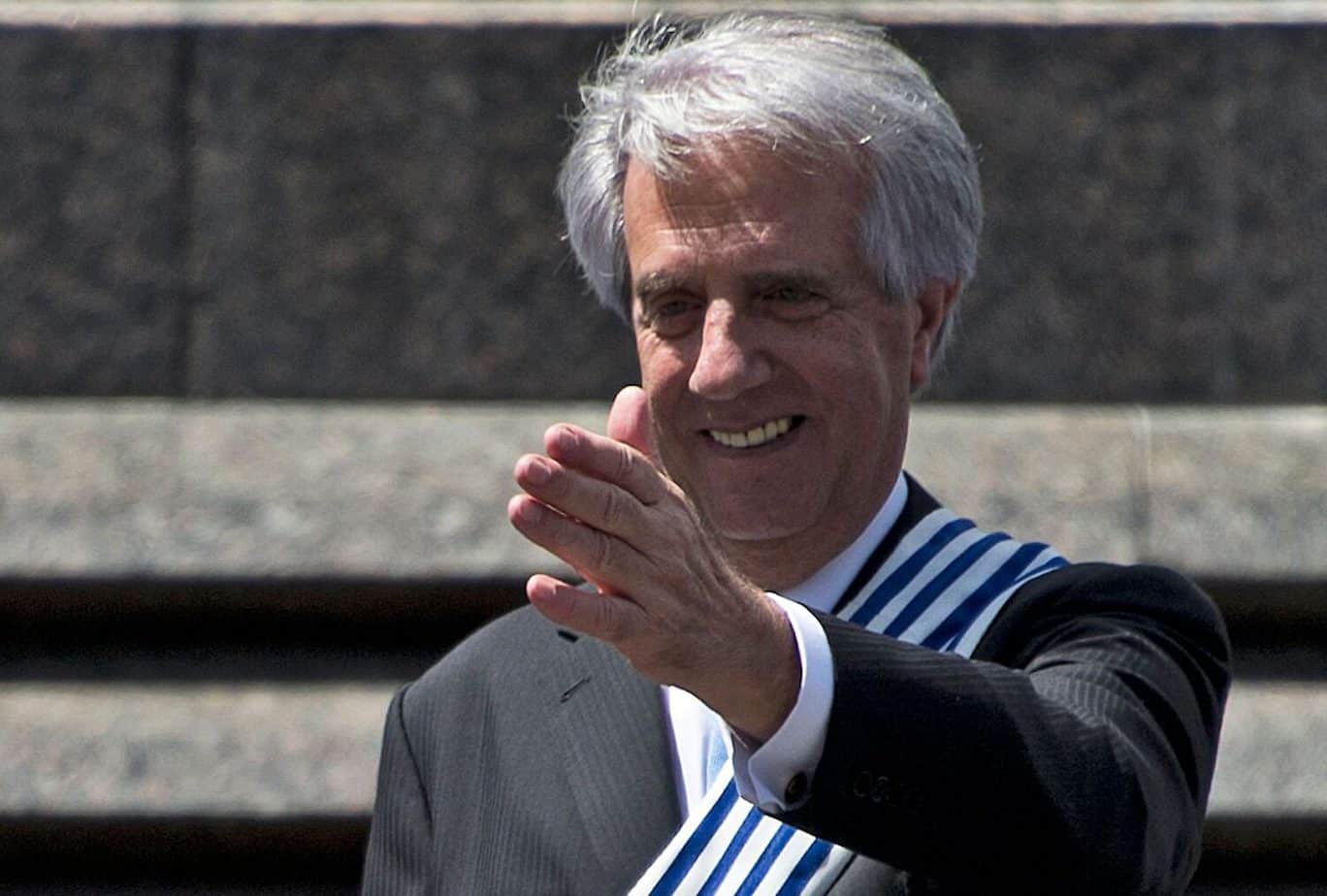He was the first left-wing president in the country’s history to win the elections as a candidate for the Broad Front
The former president of Uruguay, Tabaré Vázquez, a leader on the Latin American left, died this Sunday at 80 from lung cancer. “Today, at 3 o’clock (local time), while resting at home, accompanied by some family and friends, Tabaré passed away because of his illness,” his son, Álvaro Vázquez, a medical oncologist like his father. According to the family, there will be no wake, but an intimate ceremony and a funeral procession that from this noon will travel part of the city of Montevideo to the La Teja cemetery, in the west of the capital.
Tabaré Vázquez became the first left-wing president of his country in 2005. As the Frente Amplio, his electoral triumph ended decades of bipartisan hegemony of Blancos and Colorados. These two center-right groupings dominated Uruguayan politics since the return to democracy in 1985. Against all odds, the Frente Amplio remained in power for 15 years, until last March, with two presidencies from Tabaré Vázquez and one from José Pepe Mujica regional benchmark for Latin American progressivism.
Today, at 3:00 am, while he was resting at home, accompanied by some family and friends, due to his illness, Tabaré passed away. On behalf of the family, we want to thank all Uruguayans for love received by him over so many years.
Hoy, a la hora 3.00, mientras descansaba en su hogar, acompañado de algunos familiares y amigos, por causa de su enfermedad, falleció Tabaré. En nombre de la familia, queremos agradecer a todos los uruguayos el cariño recibido por él a lo largo de tantos años. pic.twitter.com/Osc3xzeP0y
— Alvaro Vázquez D (@AlvaroVazquezD) December 6, 2020
In August 2019, when he was nearing the end of his second term, Tabaré Vázquez announced that he had been detected a pulmonary nodule with “substantial characteristics” and that it could be “a malignant process.” Five days later, he underwent an intervention that confirmed that the tumor was cancerous. In December, the Executive reported the remission of cancer and considered the president cured. That same month, Vázquez even traveled to Argentina to participate in the presidential inauguration of Alberto Fernández. In March, he handed over the presidential sash to his successor, the conservative Luis Lacalle Pou. Last week, Uruguayans learned that Vázquez’s health had deteriorated rapidly, resulting from a cancer-related “deep thrombosis of the lower left limb,” as explained by his son Álvaro.
Vázquez held the presidency between 2005 and 2010 and then between 2015 and 2020. He was born into a middle-class family. A doctor by profession, he became an oncologist after his parents and sister died from cancer. In 2005, when he began his first term, he was already a medical reference in his country. One of his most relevant political battles was the fight against tobacco, to the point that he promoted legislation against cigarette consumption in Uruguay that earned him a millionaire lawsuit from Philip Morris before the International Center for Settlement of Investment Disputes (ICSID). In 2016, the Center ruled in favor of the River Plate country and forced the tobacco company to pay the process’s costs.
Discreet and low-key, Tabaré Vázquez was a singular president: he always measured his public appearances, spoke little, and did not use social networks. “When a president speaks, a country speaks, and the president cannot enter except to say the things that matter to the people,” the former Uruguayan president used to say, paraphrasing the Frenchman François Mitterrand (president between 1981 and 1995), of whom he confessed to being an admirer. As a leader, he did not have the international popularity of José Pepe Mujica, with whom he shared the Frente Amplio. In his country, however, he was highly recognized and admired even among his detractors. “He faced his last battle with courage and serenity,” President Lacalle Pou wrote on Twitter. “We had instances of personal and political dialogue that I value and will remember. He served his country and based on the effort. He obtained important achievements. He was the President of the Uruguayans. The country is in mourning,” he said.
Enfrentó con coraje y serenidad su última batalla. Tuvimos instancias de diálogo personal y político que valoro y recordaré. Sirvió a su país y en base al esfuerzo obtuvo logros importantes. Fue el Presidente de los uruguayos. El país está de duelo.
QEPD Presidente Tabaré Vázquez— Luis Lacalle Pou (@LuisLacallePou) December 6, 2020
More moderate than Pepe Mujica and without his charisma, Tabaré, as they said in Uruguay, cultivated the wing more in the Center of the Front. A month before handing over power, he was applauded by a crowd in Montevideo’s La Teja neighborhood, where he was born in January 1940. “Nothing is achieved alone; what was achieved we did together participating, working with the people, convincing, gaining conscience, “he said then, knowing that he was saying goodbye to the presidency forever. His last rally was also the endpoint of a political era in Uruguay, with octogenarian leaders now seeking renewal. “The legacy that our Frente Amplio is going to leave to the Uruguayan people is a legacy that we have to defend, support, be convinced of the importance it has and that is above all that we have done together,” he said, before saying goodbye with tears laden eyes. Tabaré Vázquez did not want to be hospitalized and preferred to die at home, with his family.

